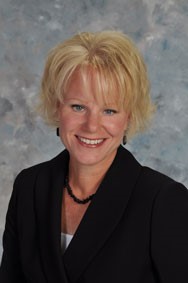Are Your Complex Systems Project Plans Credible?
Minnetonka
12601 Ridgedale Dr
Ridgedale Library
Agenda:
6:15– Network and socialize over pizza and soft drinks
6:45 – Welcome & INCOSE Chapter Overview by Eric Larson, Chapter President
7:00 – Presentation: Are Your Complex Systems Project Plans Credible? by Keith Hornbacher, Kristin Hauser
8:30 – Adjourn
This is meeting is available as a web meeting. Please register by getting a "Remote" ticket for your society.
PARTICIPANT GlobalMeet Join Details - Join as GUEST
Meeting Details Web Address: https://incose.pgimeet.com/GlobalmeetFour
Access Number: 1-719-867-1571
Guest Passcode: 959 217 0244
Meeting Management Features:
Press the * key on your telephone keypad, followed by the corresponding digit(s), to use any of these features.
Host Features:
Private roll call *92
Disconnect all *93
Lock / Unlock *94
Mute participants *96
Un-mute participants *97
Register at Eventbrite
Abstract: Development projects of all sizes, domains and varying system complexity have uncertainty and risk. How stakeholders respond to threats and opportunities can make the difference between success and failure of projects - and of careers! This presentation shares best practice strategies implemented by effective leaders to resolve project uncertainty, risk, and to reduce the incidence of unexpected events. The role of “Risk Based Thinking” (ISO 9001:2015) and an example of how NASA calculates Joint Confidence Levels (JCLs) of programmatic cost-schedule risk are included. Case illustrations range from what works poorly to what works well . . . and why.
Session Objectives: (a) Recognizing context, credibility, and symptoms of unhealthy project plans/estimates; (b) Identifying root causes and cognitive biases that influence “success” and “failure”; (c) Moving toward risk-informed Program/project decisions
Bio Sketches: Keith Hornbacher, MBA, Founder and Principal; Kristin Hauser, Co-founder and Senior Associate, Hornbacher Associates
In education as in consulting, their fundamental purpose is to resolve project uncertainty and risk. Best practices developed over years of application are the core method and are among those now published by the US Government Accountability Office (GAO), NASA and others as policy. That is: project teams and stakeholders identify uncertainties and risks while engaged in direct interviews and workshops. Probabilistic network and spreadsheet models use simulation to integrate quantitative cost-schedule risk analytics and prioritize risk drivers for treatment. Team workshops then translate analytical findings into actionable results to be implemented, evaluated, and improved.
 Mr. Hornbacher held positions of vice president and managing consultant in the Los Angeles organization that pioneered Monte Carlo simulation of project risks in aerospace/defense prior to founding Hornbacher Associates. Experience from his ongoing global practice as a consultant and contractor is often shared with professional service organizations. In Philadelphia during the fall term, he leads graduate seminars as a member of Affiliated Faculty, University of Pennsylvania.
Mr. Hornbacher held positions of vice president and managing consultant in the Los Angeles organization that pioneered Monte Carlo simulation of project risks in aerospace/defense prior to founding Hornbacher Associates. Experience from his ongoing global practice as a consultant and contractor is often shared with professional service organizations. In Philadelphia during the fall term, he leads graduate seminars as a member of Affiliated Faculty, University of Pennsylvania.
 Ms. Hauser works with projects of all sizes. She supports analysis of schedules, risks, and reports development for large US federal and private Programs/projects. Among her signature achievements ― programmatic risk analysis of the C$5 billion Hibernia Offshore Oil Platform, now on station in the North Atlantic’s “iceberg alley”. Her particular interests include overcoming challenges of implementing organizational change and bureaucratic inertia.
Ms. Hauser works with projects of all sizes. She supports analysis of schedules, risks, and reports development for large US federal and private Programs/projects. Among her signature achievements ― programmatic risk analysis of the C$5 billion Hibernia Offshore Oil Platform, now on station in the North Atlantic’s “iceberg alley”. Her particular interests include overcoming challenges of implementing organizational change and bureaucratic inertia.
Hornbacher Associates’ experience spans sectors from construction, space missions, energy extraction, and cross country pipeline transportation systems to commercial software development. Assignments include work in the private and public sectors ranging from $15 billion industrial capital expansion mega-projects to incubator-sized innovative startups.
Affiliations
- International Council on Systems Engineering (INCOSE)
- American Society for Quality (ASQ)
- Association for Advancement of Cost Engineering (AACE) International
- Institute of Industrial and Systems Engineers (IISE)
- Performance Excellence Network (formerly MN Council for Quality)
- Project Management Institute (PMI)
- University of Minnesota, College of Continuing Education
- University of Pennsylvania, Organizational Dynamics Graduate Studies, School of Arts and Sciences